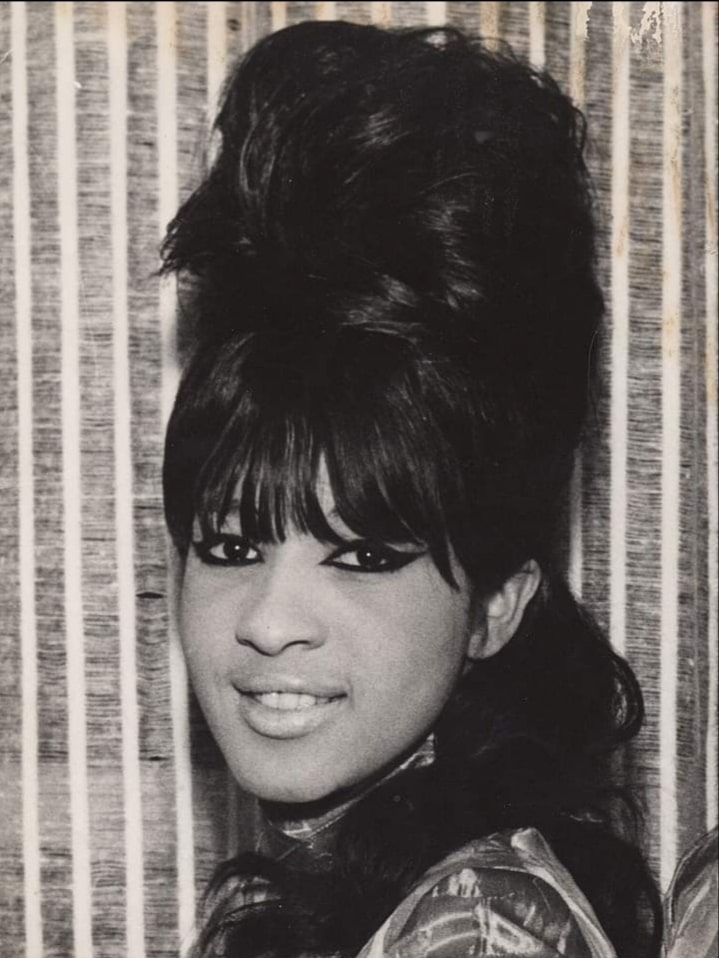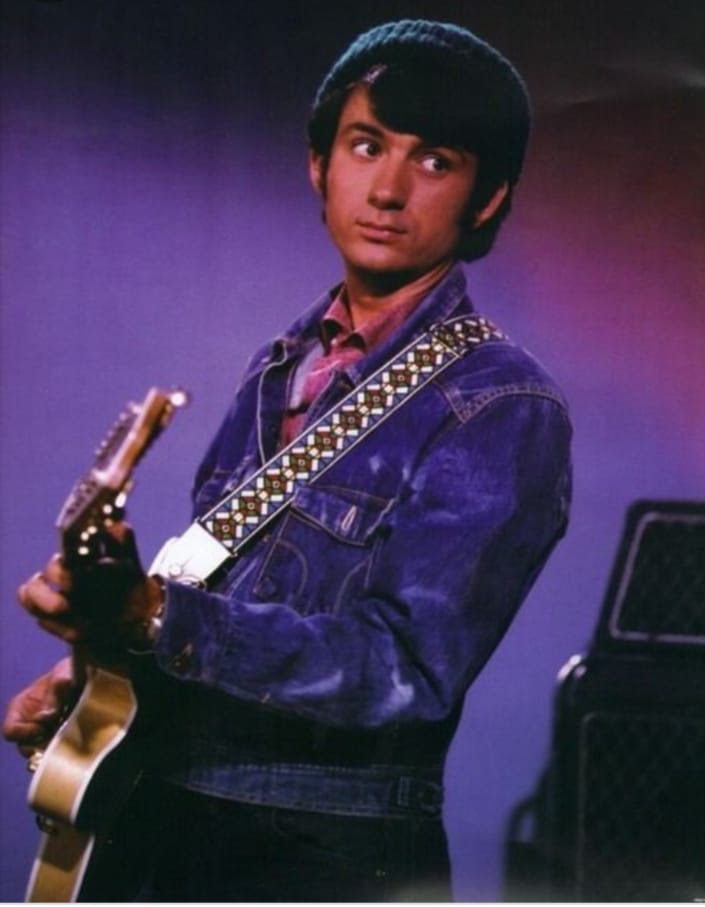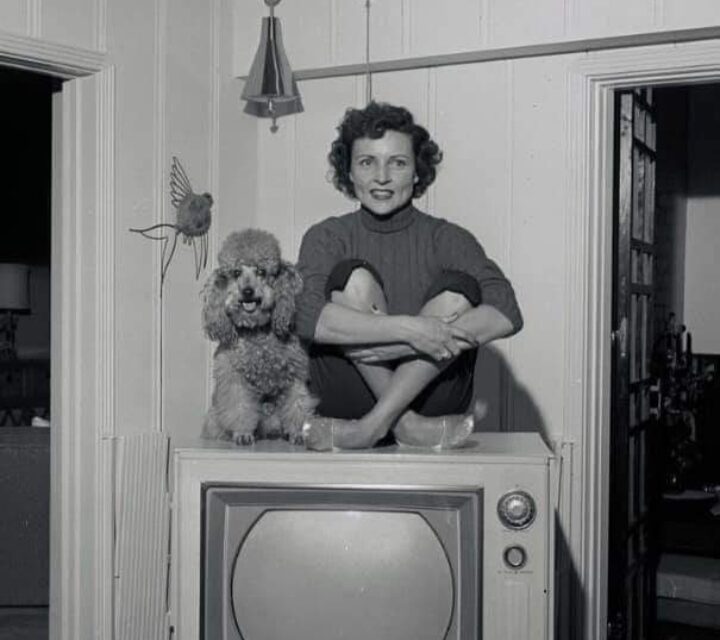Betty White, Mike Nesmith and Dwayne “Dobie Gilli’s” – Why These People Were (and Still Are) Cultural Icons
The end of 2021 and the beginning of 2022 were marked by a mass exodus of elders from the planet. Some of us may have felt a passing bit of sadness, and some may not have noticed or cared because after all, you may ask, what does it have to do with me? They were Boomers or older, and our world is so different from the world in which they flourished, right? Well, yes and no.
The passing of Mike Nesmith, Betty White, Dwayne Hickman, and Ronnie Spector have more to do with who we are and how to make a better world in our image than any of our contemporaries. Each one in their own way were trailblazers that championed and created freedoms that many take for granted today, and without each of their contributions, the world would be a much darker place, and more importantly, their passing draws attention to the rights and cultural norms they fought for which are slowly being extinguished.
It’s easy to forget that it wasn’t too long ago that women didn’t have the legal ability to control their own destinies. In as much as the women’s liberation movement of the 60s and 70s helped formulate the Equal Rights Amendment and Roe V Wade, women still to this day do not earn the same amount of money that men do, and Roe is in peril of being overturned.
Once Roe goes away, and a woman loses her right to control what happens to her own body, everything else falls, just like dominoes. The resistance to women’s equality is ingrained in the American cultural fabric. We are one of the last few remaining democracies to yet have a woman run the country, and all the misogynistic adjectives apply for reasons to not consider a woman presidency; hysterical, shrill, unpredictably moody, even bitchy. Still, even in a time where the playing field was less equal and more fraught with danger (can you imagine) there were women who took their destinies into their own hands and made it possible for us to play with the big boys, but still play as women.
You may remember Betty White as a Golden Girl or the racy, martini drinking elder on Hot in Cleveland, or even the nymphomaniac yet sickly-sweet homemaking queen on The Mary Tyler Moore Show. But, before all of this, Betty was a one-woman production company. In the late 1940s, Betty White learned to run a production in front of and behind the cameras. She did this before both Lucille Ball and Mary Tyler Moore, and whereas Lucy and Mary had their husbands as production company partners,
Betty did it alone and she did it without compromise. During the Jim Crow era in 1954, when corporate sponsorship could make or break your career, Betty dared to feature African American singer/dancer Arthur Duncan as a regular on her show, and refused to bow to pressure from Southern States to remove him, lest she be cancelled. In response, Betty countered, “I’m sorry, but he stays.” She even upped his screen time in a one-two punch to corporate sponsor threats and angry letters from southern viewers.

Betty White, even in a time that was not marked as an era where women were collectively striving for equality, refused to compromise her voice, nor would she bow to pressure from the men who sought to bully her and challenge her values. This strength of character and steadfastness kept Betty in the public eye for another 7 decades. In each era, she was an example of a woman who did not betray her femininity, yet still could run the show and stand up to the bully boys. In her later years, because of her flair for the double entendre, coupled with her wholesome image, she could “own” the roles that championed a woman’s sexual liberation, and even made it ok for women of a certain age to be viewed as sexual and sensual beings who had control of their bodies and their destinies, never asking for permission or issuing apologies. Betty never saw her career as a hallmark of feminism or a political statement.
She just “did what she had to do”, and all the while, her fight for the dignity of animals and the preservation of the planet were also big, giant bows in her quiver. All the way up to age 99, just 2 weeks short of her 100th birthday, this warrior woman, with a dirty joke on the ready and a bottle of Grey Goose at hand, was still fighting for your right to party.
Ronnie Spector, another woman who rocked our world has also recently left us. Back in the early days of rock and roll, Girl Groups were the big deal. Girls were not meant to compete on an equal playing field with the boys, but were all dolled up in cute outfits, and presented as sugar and spice and everything nice, sex kittens, or the untouchable epitome of elegance, their talent being an afterthought. Ronnie Spector and The Ronettes changed the game because they presented themselves as REAL.
They looked like any girl you’d see in the early 60s walking down any main street in New York City, in the Bronx, in Brooklyn, in Harlem… innocent yet street-wise; a little bit of toughness tempered with femininity, the real deal. Ask yourself… where did Amy Winehouse get that beehive, that Cleopatra eye makeup, that swagger mixed with vulnerability? From Ronnie Spector, that’s where.

They were so different from the vast array of girl groups in the 60s that she was christened The Bad Girl of Rock and Roll, because everyone knows, that showing a little bit of independence back then made you a very bad girl indeed. Ronnie and the Ronettes practically owned the charts in the early 60s, and toured all over the world, most notably the UK, where they met both The Beatles and The Rolling Stones, and appeared on the same bill as The Beatles in 1966. Ronnie was an icon to the Beatles and the Rolling Stones.
The guys who were changing the world and taking the focus away from the USA and moving it to England were bowing at her feet. In 1968, Ronnie married Svengali-like producer, future murderer and wig freak, Phil Spector. Soon thereafter, he forbade her from making any public appearances and virtually held her prisoner inside the barbed wire topped walls of their mansion. He even hid her shoes to stop her from escaping. But escape she did, from both the mansion and marriage, and reformed the Ronettes and began touring and singing again.
She was so influential that by the time the punk and post punk days came around, Ronnie was the icon and a much sought- after collaborator by the likes of Bruce Springsteen, Eddie Money, and The Ramones. Arguably you could say that every Ramones song was a Ronettes song sped up with a pinch of jizz. When punk ushered in the ideas that female artists no longer had to be demure creatures singing sweet little girl songs and we needed an influence, a Queen, we had to look no further than Ronnie.
She played on the same playing field as the boys. She maintained her femininity and sexuality without making it her selling point. Ronnie begat Joan Jett and Chrissy Hynde and Siouxie Sioux who begat Amy Winehouse. There is no lineage connecting her to Madonna who begat Lindsay Lohan etc .etc ., Thank God. We are the women who said we are going to play with the boys on their own pitch with a sex appeal that was real. She had everyone dying to “be her baby”. That was her legacy, and it’s now yours, if you want it.
And speaking of teenagers, which we must do, because that counterculture makes us “teenagers” from ages 13-62…. you should be aware that prior to the 1950s, there was no such thing, no such word as “teenager.” You were either a child, or an adult, but with the advent of rock and roll and the popularity of Elvis and James Dean, Madison Avenue saw a distinct market that needed to be tapped. There was a huge demographic that had purchasing power, and consuming very specific things that were symptomatic of their cultural identity.

Before the 50s and rock and roll, Levis were worn on the farm and in prison, leather jackets were worn if you rode motorcycles or flew airplanes. A market was opening up and it went beyond what you could buy in shops. It infected the culture through a common language spread on records and on the screen. The very first television show that featured a teenager as the lead, not support to adults, was ‘The Many Loves of Dobie Gillis” (1959-1963).
The title role was played by the recently departed Dwayne Hickman, who brought the character of an all-American teenage boy beyond single dimension stereotype and depicted him as a deep thinker who was on a quest for “truth and beauty” and strived to be “a real human being.” Without Dobie, for better or worse, we’d have no prime-time depictions of the beat generation, no Warren Beatty, no Tuesday Weld, no real understanding of the grappling with growing pains and the first example of the generation gap playing out on TV with Dobie’s dad, played by Frank Faylen, constantly intoning, “I’m gonna have to kill that boy.”
Bringing it forward to the next decade, the 60s saw the advent of the Monkees. Ground breaking culturally and artistically on so many levels, it was the first prime time sitcom not only focusing on youth as the major players, but this time, youth with no authority figures present. The Monkees changed and challenged the TV landscape and were part of the tapestry of the ‘60s revolution.
Going down in history as the first manufactured boyband, they were so much more. The Monkees were an example of how the wooden puppet could actually become a real boy. Vilified because they were not a “real band” but pulled together through an audition for a fictional show about a band capitalising on the popularity of the Beatles and Richard Lester’s film A Hard Day’s Night, the producers cast 2 former child actors (Davy Jones and Micky Dolenz) and 2 musicians (Mike Nesmith and Peter Tork). Jones and Dolenz, however, had a background in music and Tork and Nesmith had far more prowess and multi instrumental capability than many of their rock and roll peers.
They were disrespected by the press who called them The Pre-fab Four and ridiculed their musicianship or perceived lack thereof, yet the Monkees were welcomed with open arms on the Sunset Strip by Zappa and other cutting-edge performers, and in Laurel Canyon by Hendrix, The Byrds, The Buffalo Springfield and across the pond, by The Beatles. The press constantly harangued them for recording songs written by and played by others in the studio.
It was not a matter of choice for the boys. Just as they were prohibited from publicly speaking out against racism and the war in Viet Nam, they were prohibited from writing their own material and playing on their own albums. All this changed when Mike Nesmith who passed just before the New Year, put his fist through a wall, and threatened the powers that be that the Monkees would walk if the band did not get creative control and have the ability to play and record their own compositions.
The Texan won the fight against the big players of established record companies and publishing companies and the Monkees went on to do their thing on their own terms. Still, the press was relentless and as is so often the case, having to provide a succinct answer to an extremely stupid question, “Is it true you don’t play your own instruments?” Nesmith countered, with his signature white Gretsch guitar slung over his shoulder, “I’m fixing to go out there in front of 5000 people. If I don’t play my own instrument, I’m in big trouble.”
Mike Nesmith, who wrote some of the most seminal Monkees songs that were covered in the punk rock days and still stand as classics today, proved that the revolution WOULD be televised and you could conquer from the inside out. It may have happened in 1967, and he may have been a Texan who paved the way for the country rock renaissance in the early 70s, but that ethic, my dear, was fucking punk rock.
As much as Mike, Betty, Dwayne, and Ronnie were part and parcel of a period that reads like ancient history to many who read this, they are why we are who we are, and within the lessons of their life struggles and acomplishments lies a message cautioning that things could go back to the way they were in their battleground days; the times of misogyny and gender inequality, the times of big business corporate control and censorship, the times where we had no voice, no choice, no future. Let them live in your hearts. Learn from them, and wear their struggles and accomplishments like badges that move us all forward. Make their war cries yours, and don’t forget them. Pick up their gauntlet, and above all…honour their party. R.I. FUCKING P.





